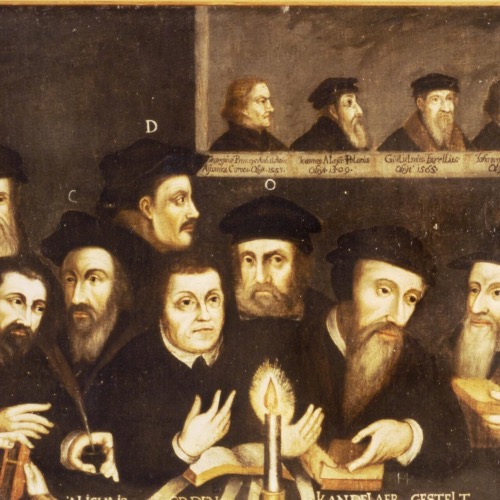
Lutheran Masculinities 1517–1937
Funders
Main funder

Finnish Cultural Foundation 2024–2026
Leaders
The project investigates how
the ways in which ideals, expectations and norms of manhood and masculinity have been constructed, developed, and transformed from the 16th-century Reformation to the early decades of the 20th century. Of particular interest is to examine the role of Lutheranism in the formation of Finnish manhood and masculinities. The examination begins with the roots of Lutheranism in Germany, focusing on the thoughts of Martin Luther and his contemporary reformers, before shifting to the context of Finland from the 17th to the 20th centuries. The project will explore both the enduring constructs of manhood and masculinities that span centuries, and the specific features related to particular times and contexts.
The project focuses on how influential figures of the time, such as clergymen, professors, and politicians, both constructed their own masculinity and created general norms, expectations and ideals of masculinity. On the other hand, we also examine how previously overlooked actors in historical research, such as socially and/or theologically oriented laypeople, have likewise constructed Lutheran masculinities in their own writings.
The project consists of four sub-projects. For the 16th century, Tapio Leinonen will explore the conceptions of masculinity present in Martin Luther’s theology and investigate how Luther was portrayed as a model of Lutheran man in the biographies of early reformers. The project leader, Sini Mikkola, will examine the construction of masculinities in the texts of 16th-century female theologians. Miia Kuha will explore the ideals, norms, and expectations concerning clerical masculinity as they relate to marriage, family, and spouses in 17th- and 18th-century Finland and the broader context of the Swedish realm. Hanna Pöyry will explore ideal Lutheran masculinities that Finnish- and Swedish-language pietist publications and Christian children’s literature created in 1830s and 1840s Finland. Sini Mikkola will extend the investigation to the turn of the 19th and 20th centuries by examining how Martin Luther and Mikael Agricola were portrayed as representatives of ideal masculinity in Finnish biographies from the latter half of the 19th century and the early 20th century.
The project blog (in Finnish) can be found at: https://blogs.uef.fi/luterilaiset-maskuliinisuudet/



